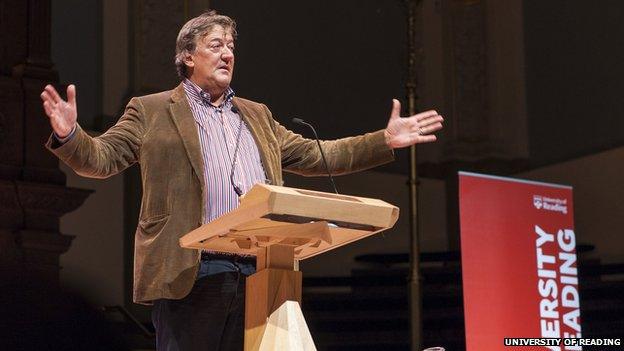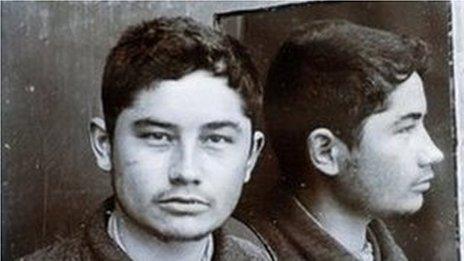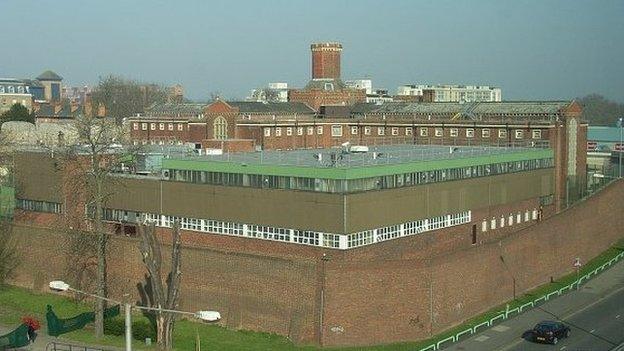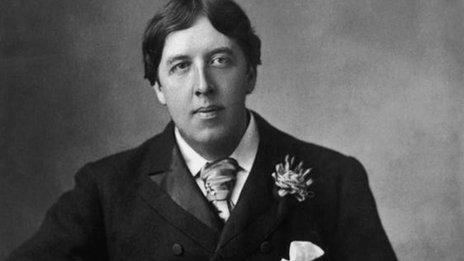Stephen Fry delivers Oscar Wilde lecture at Reading Town Hall
- Published

Stephen Fry is honorary patron of the Oscar Wilde Society
Stephen Fry has delivered a lecture in honour of Oscar Wilde at Reading Town Hall.
The actor and TV presenter gave the inaugural lecture at the venue organised by the University of Reading.
He told the audience at the sold-out event how he "became obsessed" by Wilde's work after seeing The Importance of Being Earnest on television as a child.
"He really was a lord of language," Fry said. "He spoke to me so clearly."
Wilde was incarcerated in Reading Gaol in the 1890s, which inspired his epic poem The Ballad of Reading Gaol.
Fry visited Wilde's old cell at Reading Prison before he delivered his hour-long lecture - and took questions from the audience - on Thursday night.
The QI star, who served three months in prison aged 17 for credit card fraud, recalled how reading Wilde's works in his cell led to "an epiphany" which allowed him to turn his life around.
He also read passages from The Ballad of Reading Gaol and De Profundis, a letter written by Wilde during his imprisonment to his friend and lover Bosie (Lord Alfred Douglas).
Fry said afterwards: "I had a wonderful evening giving the University of Reading's inaugural Town Hall Lecture about, amongst other things, my love of Oscar Wilde. I think it is safe to say that I had a much better time in Reading than he did, poor soul."
Fry is honorary patron of the Oscar Wilde Society and played the title role in the 1997 biopic about the poet and playwright.
Reading University's vice-chancellor Sir David Bell said: "The closure of Reading Prison in December 2013 was a reminder of its iconic role in the town's history.
"Oscar Wilde and his relationship with the prison therefore seemed a fitting topic to have as our inaugural Town Hall lecture."
Oscar Wilde was sentenced to two years of hard labour in prison for gross indecency after his affair with Alfred Douglas was exposed in 1895.
The Ballad of Reading Gaol was inspired by his experiences and reflected the brutality of the Victorian prison system.
Following his release from prison in 1897, Wilde campaigned against the imprisonment of children and those with mental illnesses.
- Published16 October 2014

- Published27 May 2015

- Published6 March 2014
